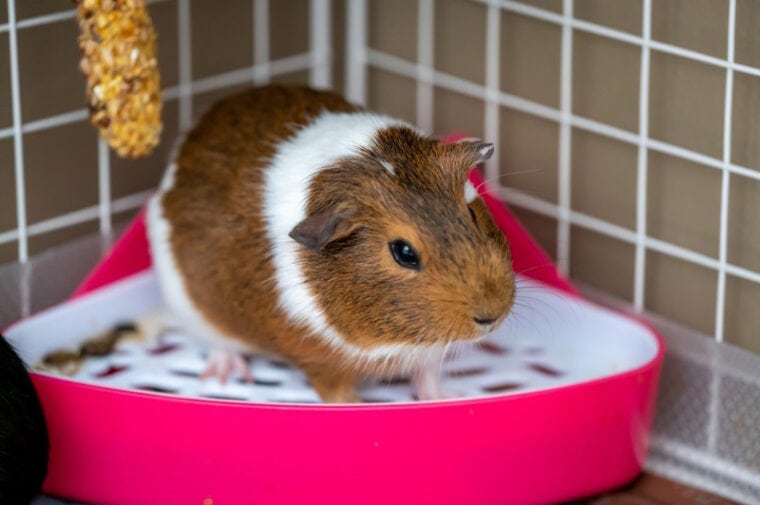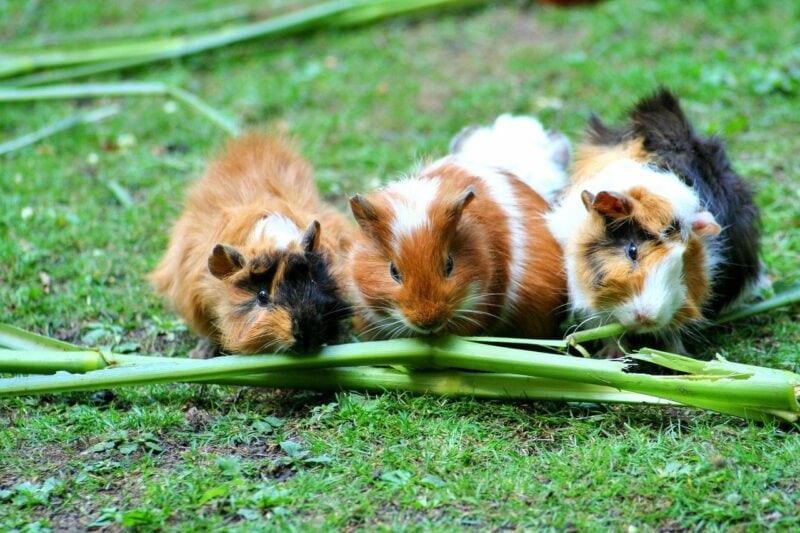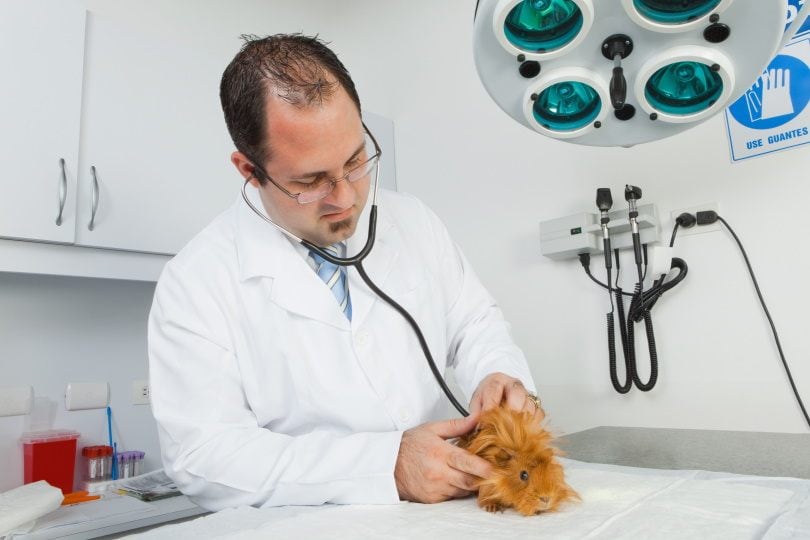
Guinea pigs, sometimes called cavies, are excellent pets for individuals looking for a pet that’s low maintenance and delightful to keep. However, ownership means responsibility. That includes clean housing, a proper diet, and the necessary health care.
If you’ve ever owned a guinea pig, you’re probably curious about why such little critters create so much poop. There is a lot that goes into the answer, but basically, their diet has a relatively low nutritional value, thus causing them to eat and poop frequently. Keep reading for the details.
The Diet of Guinea Pigs
Guinea pigs eat plant materials. They mostly feed on leaves and other types of vegetation. They will also eat fruits and vegetables. Many of these items contain large amounts of water. For example, the romaine lettuce you might give your pet is nearly 95% water. They can also digest food relatively quickly.
Consequently, guinea pigs eat a lot more food than other pets. Timothy hay is one of the best things you can offer your cavy. It contains between 30% to 40% dietary fiber. Its insoluble fiber content provides a lot of roughage that your guinea pig will eliminate. It’s worth noting that these animals are efficient eaters, gleaning much nutritional value out of their food.
While a good diet provides nutritional support, there’s also a lot of waste. Interestingly, the cavy is wary of anything new in its world. That makes a varied diet as a young pup vital for good health.

Guinea Pig Digestion
The other vital element to this question is the animal’s digestion. We know that these animals eat copious amounts of food, much of which contains lots of fiber.
The real concern isn’t your guinea pig producing too much waste but instead, too little or too loose. If your pet isn’t getting adequate nutrition, it may ingest its waste during the day to make up for the lack of food. Remember that cavies don’t use just one area in their cage to defecate, either. Any place is fair game. Their diet means they will be eliminated frequently.
Other signs that can raise a red flag include:
Unfortunately, GI distress is common in guinea pigs, usually caused by whatever was consumed. Iceberg lettuce is often a culprit. We recommend avoiding giving your pet this green. Diarrhea isn’t diagnostic, and many things can cause it, including stress, antibiotics, and bacteria. It’s worth noting that cavies can also get—and spread—Salmonella to humans.
The treatment for digestive issues begins with a physical examination and a history of your pet’s behavior and diet. Additional testing can identify other causes, like parasites or diseases. IV fluids under the skin can rehydrate animals as necessary. Your vet may recommend supplementing your pig’s diet with liquid vitamin C until it has recovered.
The takeaway message is you should treat elimination issues promptly, especially if your guinea pig has diarrhea. It doesn’t take long for an animal to get dehydrated, causing additional and often more severe complications.

Final Thoughts
Guinea pigs are pros when it comes to hiding signs of an illness. It’s instinctive. However, if you notice changes in your pig’s behavior or eating, it warrants attention. It means something has been going on for a while.
The proper perspective is also essential. Guinea pigs eat a lot; it’s simply a part of their biology. It’s usually only a concern if you observe other signs that something’s wrong.
Related Read:
- Why Do Guinea Pigs Eat Their Poop? Surprising Benefits
- Do Guinea Pigs Eat Their Babies? Facts & Care Tips
Featured Image Credit: Lost_in_the_Midwest, Shutterstock








